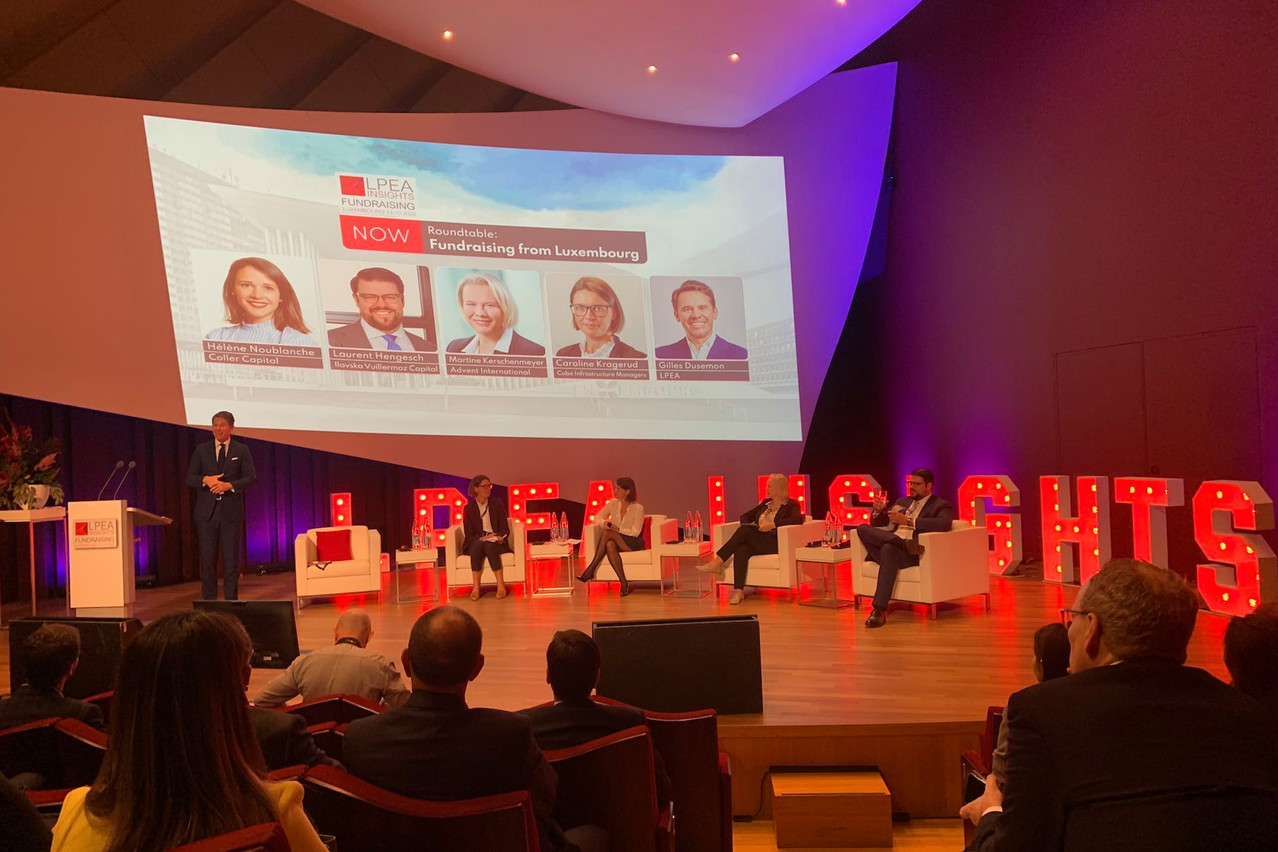Fundraising is increasingly seen as a strategic role at private market fund firms and is a function that can easily be run out of the grand duchy. At the same time, firms may need to reconsider how they approach recruitment and retention, as the sector’s staff crunch continues to bite.
The comments came during the LPEA Insights 2022 conference on Thursday 13 October.
Perception of IR role
, LPEA executive board member and partner at the law firm of Arendt & Medernach, said the investor relations function has traditionally been undervalued, but has been taking on greater importance, globally since the 2007/2008 financial crisis and particularly in Luxembourg since the 2016 Brexit vote. He said it was an essential function, which he would like to see more of based in the grand duchy as Luxembourg increasingly broadens from the back and middle office into the front office.
, director, limited partner services at Advent International, quipped that she “started in fundraising before it was a profession.” The native Luxembourger worked in London for 20 years, where IR staff used to be considered “second class citizens.” These days, she said, it is acknowledged that IR teams are responsible for “building long term trust” and fostering relationships “that are longer than marriages sometimes.”
“If there’s no money coming in, you can’t invest, so there’s no business,” Caroline Kragerud, head of investor relations at Cube Infrastructure Managers, commented more bluntly.
Growing sector
Earlier this month Preqin, a data and research outfit, forecast that assets under management in alternative funds globally would increase from $13.7trn at the end of 2021 to $23.3trn at the end of 2027. Assets under management in Europe were predicted to grow from $2.22trn at the end of 2021 to $4.1trn at the end of 2027.
Annual fundraising in Europe was expected to rise from $21.3bn at the end of 2021 to $30.5bn by the end of 2027, Preqin .
Speaking at the “Fundraising from Luxembourg” roundtable at the LPEA conference, Kragerud pointed out that assets under management in infrastructure funds (her segment) were expected to double between 2021 and 2027. Investing in infrastructure “is one of the most efficient ways of tackling” decarbonisation and climate change. Energy transition, renewables and energy efficiency projects “are extremely important today and investors are looking to be part of that.”
In a survey carried out by her firm, Hélène Noublanche, investor relations manager at Coller Capital, said that 71% of 110 private equity investors reported that their PE portfolio had outperformed their public market investments. More than half increased their PE allocations over the past 2 years.
Secondary markets
Noublanche said that increased PE allocations will create opportunities for firms (like hers) to pick up stakes in the secondary market, perhaps bringing a bit more liquidity to the famously illiquid category.
Kerschenmeyer noted that the current economic climate has prompted some investors to want “to get into older vintages”. , founding partner of Ilavska Vuillermoz Capital, observed that the larger and more successful a portfolio company, the more liquidity it has in the secondary market.
Read also
Staffing challenges
Investors and fund firms have been experiencing difficulties in hiring and retaining staff, Noublanche said to wide agreement.
That is the case in Luxembourg and elsewhere, Kerschenmeyer added. The pool of IR professionals is even smaller, and when you’re “fishing in a small pond, it becomes difficult.” Firms need to decide if they want to focus their recruitment on reskilling or relocation, she suggested.
Demonstrating a good approach and firms making a difference on climate change is a major plus in “attracting younger people”, according to Kragerud.
Ilavska Vuillermoz Capital is currently for a senior investment manager, Hengesch recounted. Out of 100 applications via Linkedin so far, 20 people were located in India and only 1 was a woman. “We’re really struggling to find people from here.”
Call for lower threshold
When it comes to serving as a fundraising hub, “Luxembourg can offer the solutions,” Dusemon stated, “but we can do it better.” He called for the minimum investment threshold for semi-professional or “well informed” investors to be lowered from €125,000 to €100,000 in Luxembourg. That would put the grand duchy on par with France, Ireland, Italy and the Netherlands, he said.
The shift would help pull in more funds targeting high net worth retail clients, he argued. The €100,000 floor could be introduced at EU level, but that would come into play in “2025 at best,” Dusemon said. Instead of waiting two-plus years, he would like Luxembourg’s parliament to make the move at national level. “It’s a low hanging fruit.”
New feeder fund in the works
Hengesch--whose firm announced earlier in the day that the former LSAP deputy prime minister and ex-economy minister would --revealed at the conference that Ilavska Vuillermoz Capital would start a Czech feeder fund with local partners. “We saw an opportunity with Eastern European private clients.” No launch date has been set.
The annual LPEA Insights conference is organised by the Luxembourg Private Equity and Venture Capital Association (LPEA), which represents around 370 member firms in the private market fund industry.
